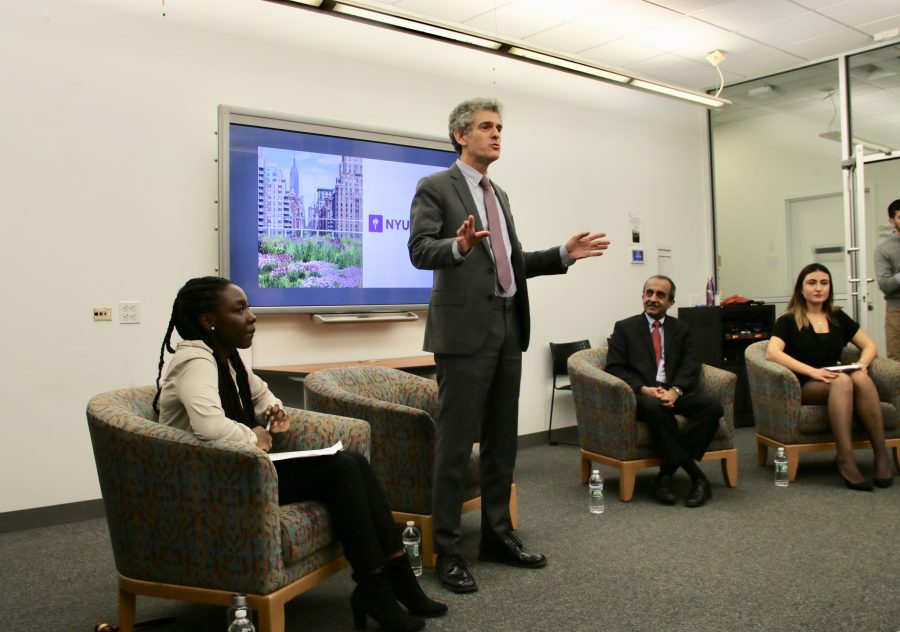NYU’s carbon footprint, along with climate change in general, was the subject of a conversation with the UN New York Office director Wednesday on campus.
Speakers on the panel included Cecil Scheib, NYU Assistant Vice President of Sustainability, and Jamil Ahmad, the United Nations Environment Program ad interim Director for the New York office and Intergovernmental Affairs. During the discussion, titled “Expert Panel on Climate Change and Carbon Pricing” and organized by the UN Initiative and the NYU chapter of Citizens’ Climate Lobby, the two addressed the issue of climate change in the context of NYU and the world.
Scheib explained the cause of NYU’s large carbon footprint is the old age of the university’s campus buildings. He noted that 60 percent of NYU buildings are more than 50 years old.
“Those buildings were built when the belief was you needed fresh air year-round for health,” Scheib said. “Those radiators [were] oversize on purpose, so you could have the windows open in all weather. That was the design intent. Things have changed, but the radiators have not, so we inherit these problems.”
In terms of the carbon goal that NYU is trying to achieve, Scheib said the university has cut carbon emission by 30 percent from the 2006 and 2007 baseline. The goal is to get to the 50 percent cuts from that baseline year by 2025 and carbon neutrality by 2040.
Scheib also mentioned Brittany Hall’s renovation to make it more environmentally friendly. According to Scheib, before the renovation, Brittany Hall used heavy oil boilers that spilled out particulates all winter that the neighbors inhaled. The boilers were located in the basement and were considered a flood risk.
Now, according to Scheib, Brittany Hall uses small natural gas boilers on the roof that can be converted to electric heat pumps. The renovation helped Brittany Hall cut its space heating energy use by 81 percent and slash its carbon emissions by 43 percent with the addition of air conditioning.
Ahmad brought up the abundance of single-use plastic waste during the panel. “We are throwing plastics into our waterways, into our rivers and into our oceans,” Ahmad said. “The rate at which we are throwing our plastics… there will be more plastics in the ocean than fish.”
Ahmad stated that the average life of a plastic water bottle is 20 minutes but the plastic stays on the planet for 400 years. He also alluded to the recent discovery of a dead whale in Indonesia that contained 1,000 pieces of plastic in its stomach.
Omar Fahmy, a CAS senior and a member of the UN Initiative, said the panel was informative but lacked greater emphasis on carbon pricing.
“I think it was well done. I would like to have a business perspective, someone from sustainable business, a company that advocates and says, ‘Yes, we do carbon pricing.’”
Scheib believes that the key to changing people’s views on climate change lies in the way questions about it are posed.
“If you ask people and say like, ‘Do you think the U.S. government should fight climate change?’ You are going to get a lot of people in this country [who are] going to be like, ‘I’m going to say no to that question.’ If you ask people, ‘Hey are you worried about asthma in your community?’ They would be like yeah.”
Ahmad ended with a call to action for younger generations to combat climate change.
“Our message to youth especially is to be an ambassador in the fight against climate change, to work for the protection of the environment in our countries, in our communities, in your areas of interests that you have and to work together and how we can address it.”
Email Justin Wu at [email protected].






















































































































































